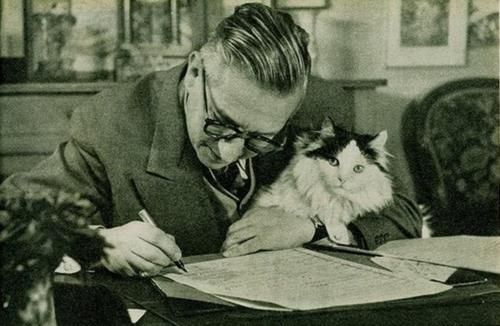I'm writing my second novel, and feeling pretty good about it. Establishing a writing routine for the first novel, "Here Be Monsters", was interesting as I'd never done anything like it before. Having successfully been through it, as well as having written an additional pair of novellas, "Mickey Slips" and "Bound for Home" in the intervening year, I feel confident and comfortable with my process.
I'm sharing my 7 ingredient recipe for productive writing not as the best or only way to write, but simply as one possible way that has worked for me. Feel free to ignore or modify any or all of the recipe as suits your needs; my only hope is that it will be helpful to someone looking for a way to start (and hopefully finish) their writing project.
Productive Writing Recipe
Ingredients
- Coffee
- Food
- Water
- Plan
- Quiet
- Time
- Permission
Directions
Coffee is an integral part of my writing process, I'm drinking my third cup of the morning right now. That being said, I understand that not everyone likes to prime their pump with coffee...that's fine. Coffee, besides being a tasty caffeine delivery system, is also, in this case, a metaphor; I use it to mean anything that helps you reach a state of wakefulness and synaptic function that writing is possible. Other means that I use to "get in the zone" include playing with my dogs, reading, splashing my face or showering, and going for a swim. Whatever it takes to get you going can stand in for, or bolster, the coffee that is the first part of my writing ritual.
It's important to note that too much coffee can disrupt your writing process...so be careful out there folks!
I try to maintain the correct balance of caffeine to other vital nutrients throughout my writing periods, and after months of arduous experimentation, generally manage to find that happy and productive and slightly wired knife's edge
A good rule of thumb is to drink at least as much water as coffee over the course of a writing session (yes, I fail at this sometimes also).
If coffee is what gets your engine started, food it the fuel that keeps your brain and hands going during the hours of writing you hope to get done each day. Without adequate, and adequately nutritious, food, your writing sessions, and writing, will suffer.
I try to eat a good meal with a mix of proteins, carbohydrates, and fats before I begin writing for the day, and follow that up with snacks either as I go along or during the breaks that I try to remember to take.
Junk food is easy and yummy, but can be hard on the laptop keyboard and also lead to energy spikes and dips. I work to keep my writing foods simple and plain and a little bland...I'm looking for fuel, not a gastronomic experience.
I always have a glass of water beside me while writing. To painfully extend the engine metaphor I've been beating you over the head with so far (and thankfully plan to abandon from this point onwards), it is the lubricant that keeps all of your systems running smoothly, and allows you to take full advantage of the writing productivity boost granted your hands and brain by the aforementioned coffee and food.
I work to drink about a gallon of water every day, more when it's hot or I'm physically active. If you start with a full glass, and refill it every time you take a break in your writing, you'll be doing yourself, and your writing, a big favor.










2 comments:
I like the sound of this recipe. now if I. can just get ny dog to cooperate. she always decidesit is play time when I am hot in the middle of a great scene.I
This is fantastic! All things I knew, but put together in a way that speaks to me. Thanks!
Post a Comment